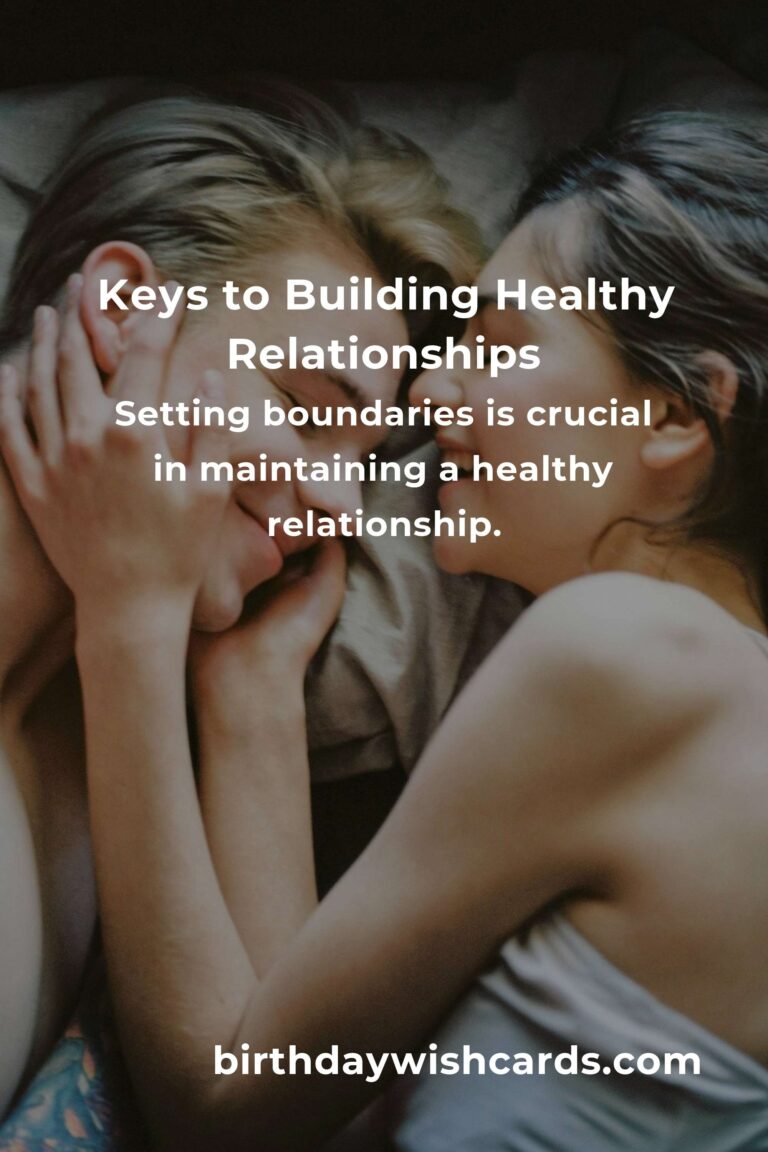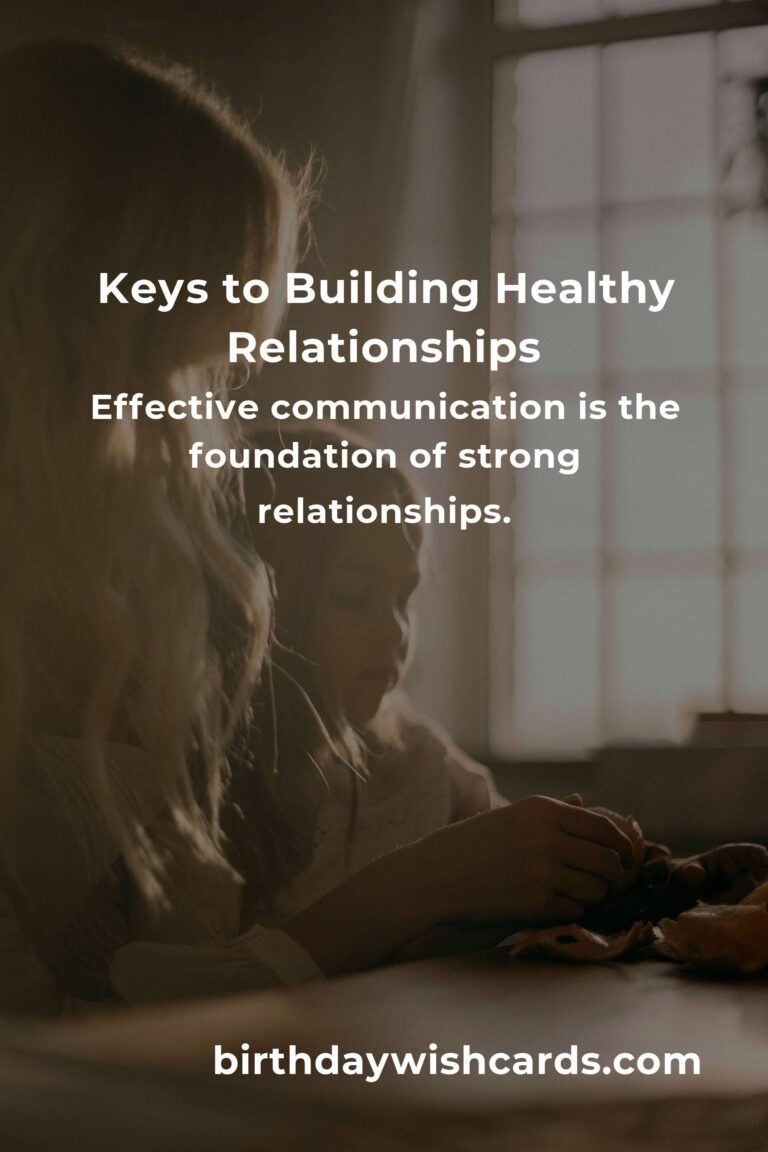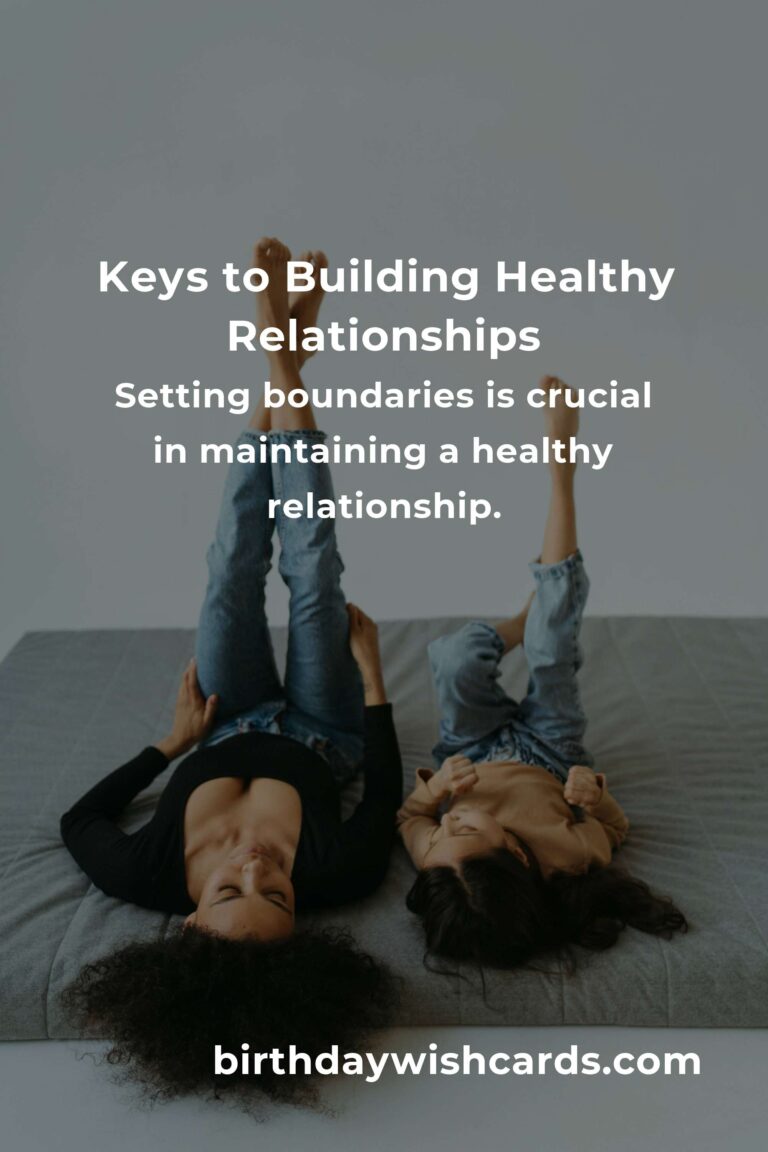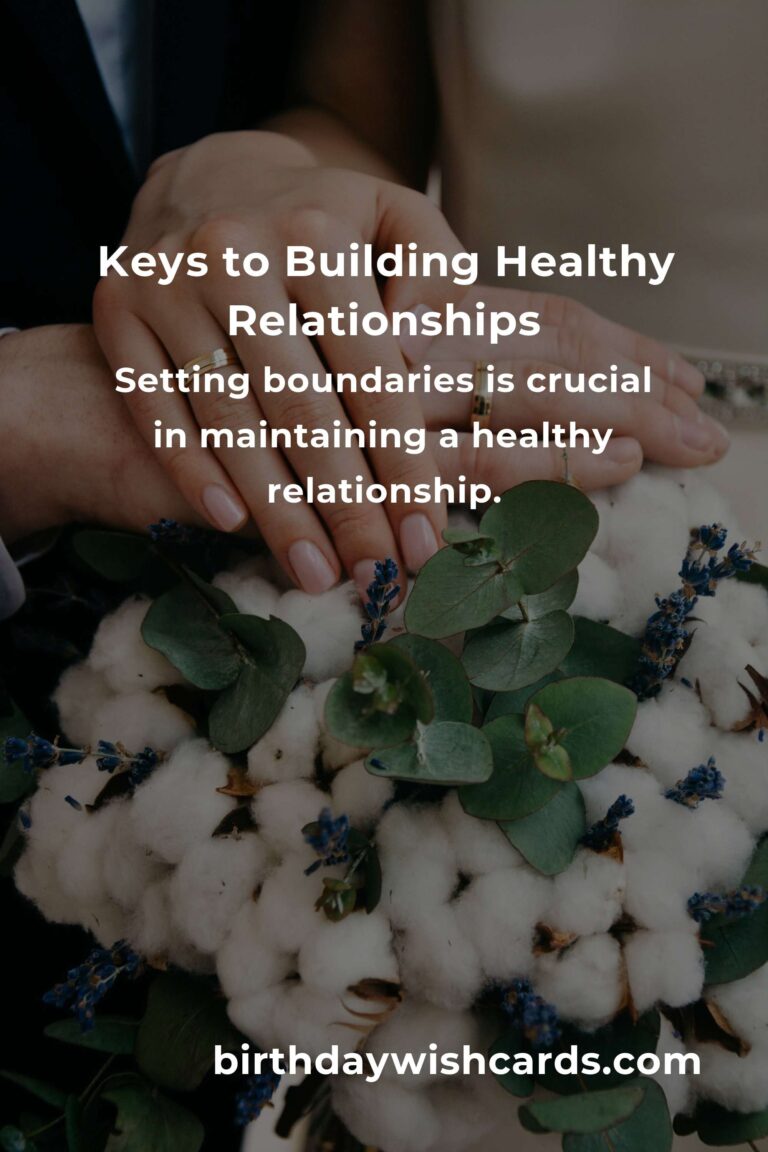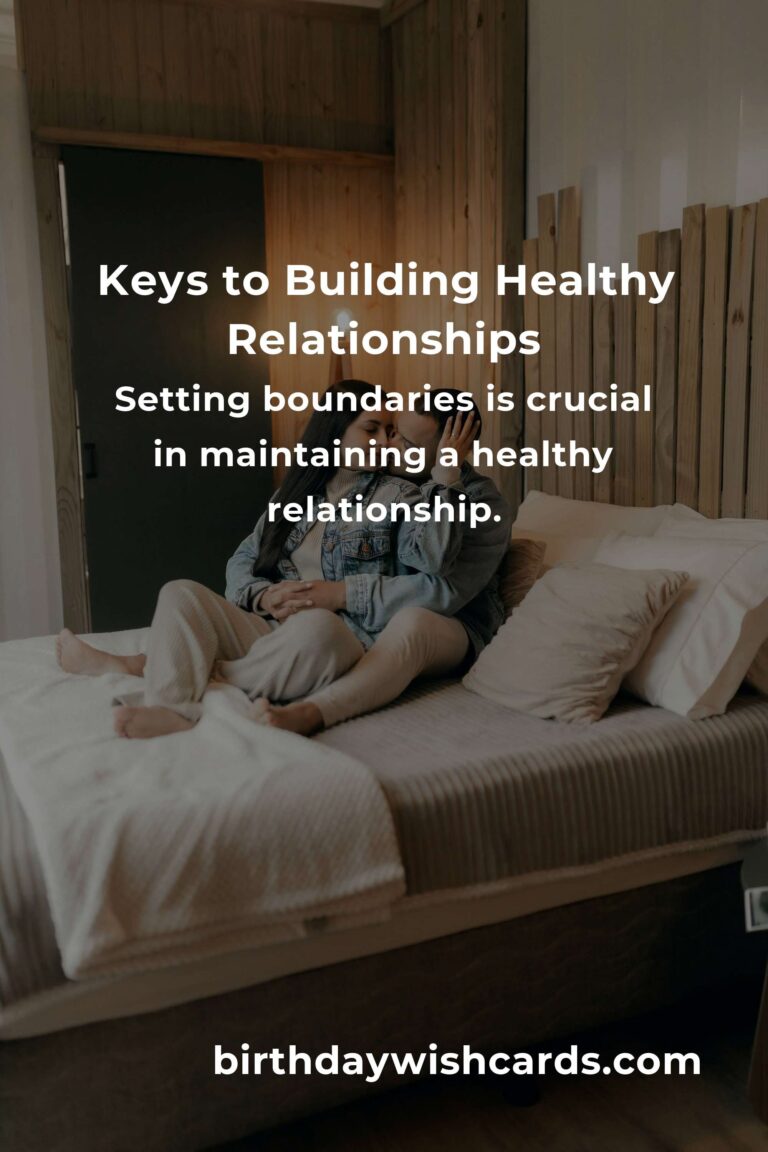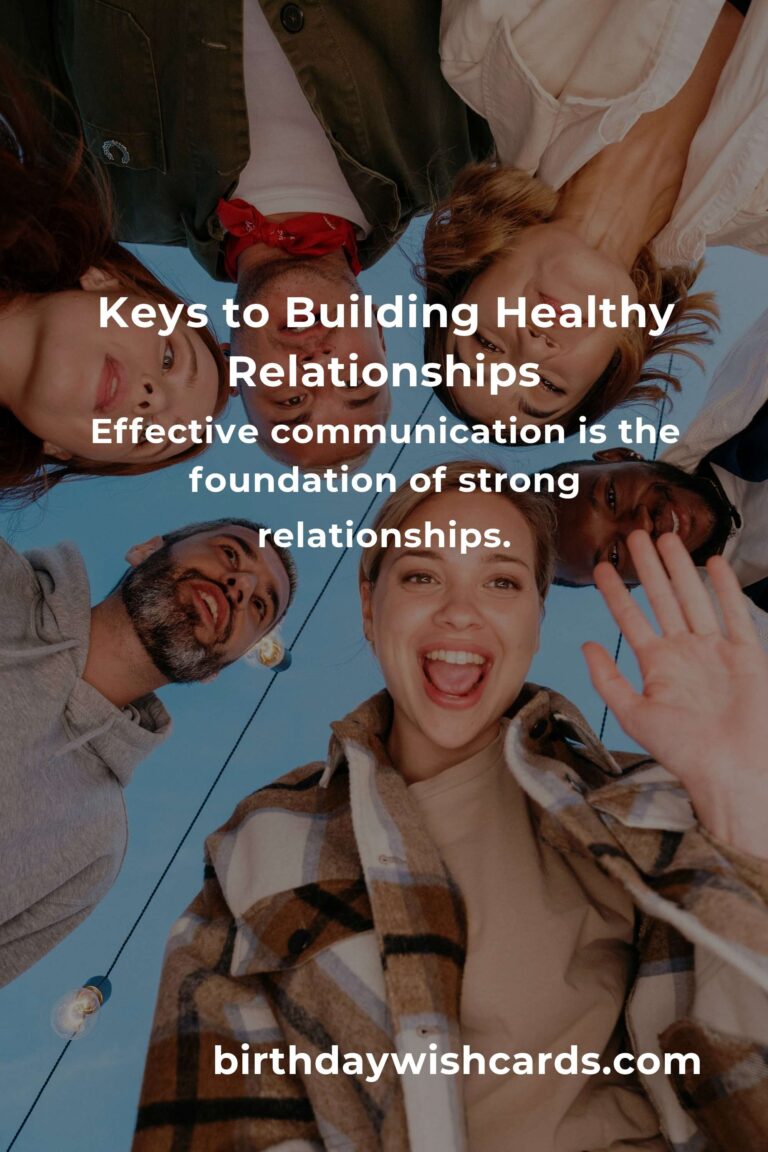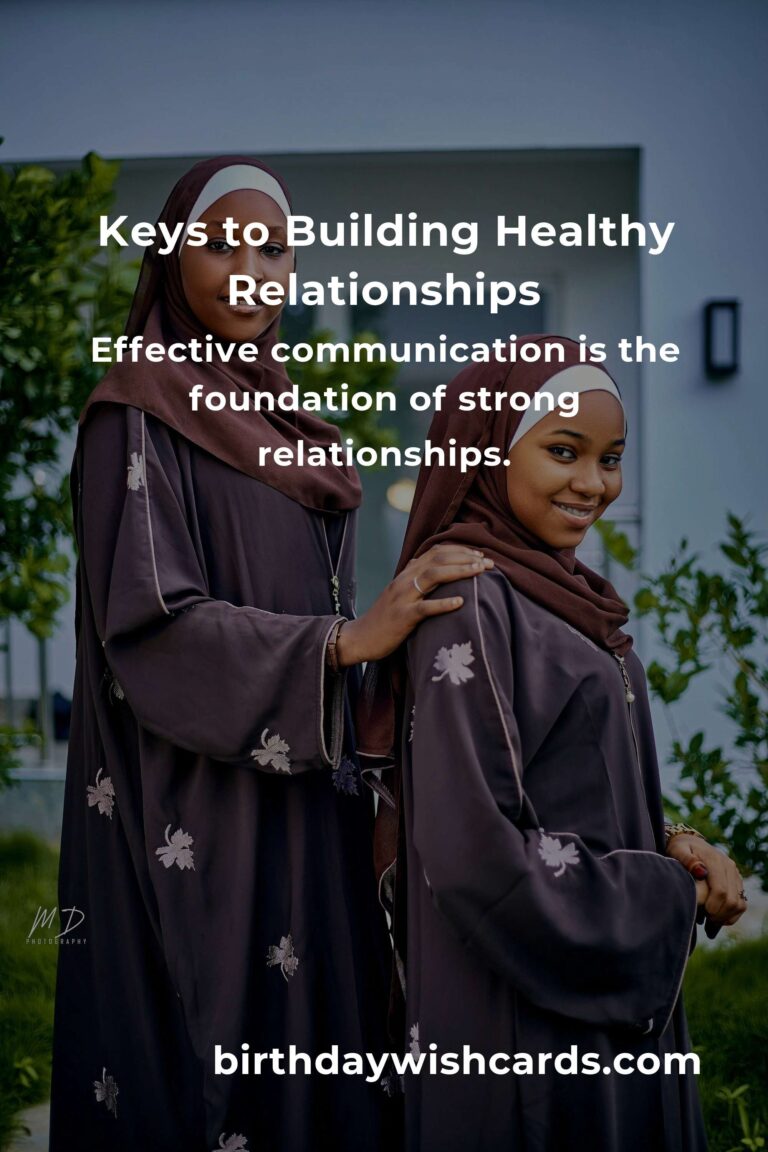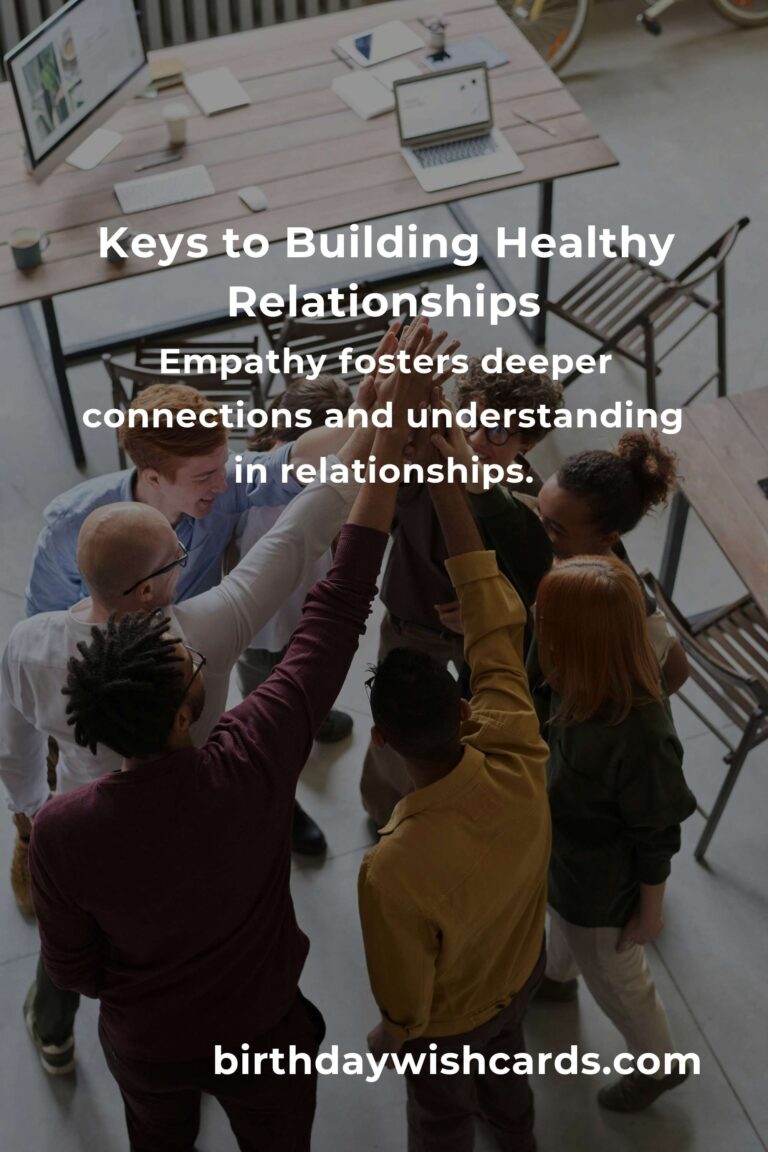
Healthy relationships are a cornerstone of a fulfilling life. Whether these relationships are with family, friends, or romantic partners, they can significantly impact your mental and emotional well-being. But what does it mean to have a healthy relationship, and how can you ensure that your relationships remain both effective and healthy?
Understanding Healthy Relationships
At their core, healthy relationships are built on mutual respect, trust, and open communication. These elements help create a safe space where both parties can express themselves freely and support each other’s growth.
Communication is Key
Effective communication is often cited as the foundation of any strong relationship. This involves not just speaking, but listening actively, understanding non-verbal cues, and being open to feedback. Engaging in open dialogues where both parties feel heard can prevent misunderstandings and build a stronger bond.
Establishing Trust
Trust is another essential component of a healthy relationship. It is developed over time and requires consistent honesty and integrity. Trust means feeling secure that the other person will support you and keep your best interests in mind.
The Role of Boundaries
Setting boundaries is crucial in maintaining a healthy relationship. Boundaries help define personal space and ensure that both parties are comfortable and respected. Discussing and agreeing upon boundaries can prevent conflicts and promote harmony.
Handling Conflicts
No relationship is without conflicts, but healthy relationships handle disagreements in constructive ways. Approaching conflicts with a problem-solving mindset, rather than a confrontational one, can lead to solutions that satisfy both parties.
Shared Goals and Values
Having shared goals and values can strengthen the bond between individuals. It provides a shared direction and purpose, helping both parties move forward together. However, it’s also important to respect and celebrate differences, as they can enrich the relationship.
Practicing Empathy
Empathy involves understanding and sharing another person’s feelings. By practicing empathy, you can view situations from your partner’s perspective, which fosters deeper connections and understanding.
The Importance of Self-Care
Maintaining a healthy relationship also requires taking care of yourself. Self-care ensures that you are in the best position to support others. It prevents burnout and helps you maintain a balanced and healthy approach to relationships.
Conclusion
Building and maintaining healthy relationships require effort, understanding, and commitment. By focusing on communication, trust, boundaries, and empathy, you can cultivate relationships that are both effective and fulfilling.
Healthy relationships are built on mutual respect, trust, and open communication. Effective communication is the foundation of strong relationships. Trust is developed over time with consistent honesty and integrity. Setting boundaries is crucial in maintaining a healthy relationship. Handling conflicts constructively leads to solutions satisfying both parties. Empathy fosters deeper connections and understanding in relationships.
#HealthyRelationships #Communication #Trust #Boundaries #Empathy #SelfCare


